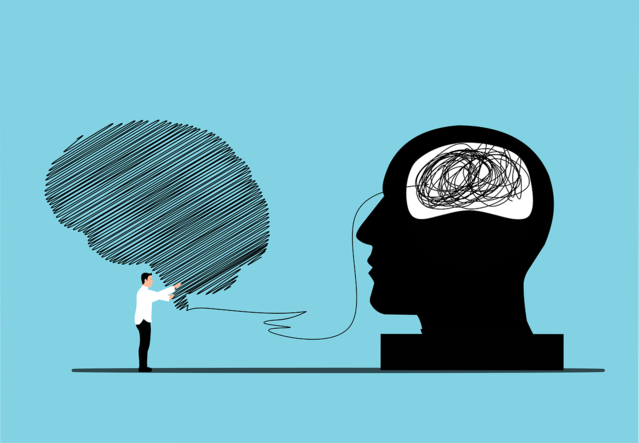Anxiety
The Decision to Try Therapy Can Be Difficult for Men
Here's how men can approach therapy.
Posted May 12, 2022 Reviewed by Lybi Ma
Key points
- Men often have a number of worries that can influence their decisions about therapy.
- Men are much more interested in learning how to deal with difficult emotions than previously thought.
- Focusing on The Three C's can help: Credentials, competence, and character.

Deciding to see a therapist can be a difficult decision for many men. Whether they have felt the need for therapy themselves or have been prompted by a family member or friend, it’s a big step.
After the decision has been made, the hard work is just beginning. Many men don’t know how to choose a therapist and are often faced with a lot of concerns. Do I want to talk to another guy? Can I be honest with another man? What about a woman? What will she think of me if I cry in front of her? What if we don’t get along? What if she doesn’t understand me?
These are valid concerns. Unfortunately, you won’t know the answers to some of these questions until you make the call and get started. A common misconception is that psychologists and counselors won’t understand what their patients are going through. This really boils down to relatability and feeling heard and understood.
This is a legitimate concern. Before becoming a father, I believed that I could still relate to what my parent patients were going through—and I couldn’t have been more wrong. Psychologists receive training in several interventions that help boost empathy and listening skills; however, there’s not enough training in the world that puts you through the rigors of fatherhood.
Where Is the Line for Relatability?
Will a therapist understand my anxiety? Will he know how it feels to be depressed?
When I was in graduate school, this topic came up in discussion. One of my professors asked, “Well, how sick do you want your psychologist to be?”
Should your therapist have depression, anxiety, or even addiction or psychosis just to understand you? Truthfully, therapists may only be able to intellectually understand what you’re going through but may not be able to emotionally identify with every aspect of your experience. This is normal, though.
Choosing a therapist should not be based on whether they have kids like you, are anxious like you, or have been addicted to substances like you. Instead, look at the following factors. The 3 C’s: credentials, competence, and character.
Credentials
Being good at giving someone advice is a great skill, but it is not enough to be a good therapist. Save those friends for between therapy visits. At a minimum, the person you look for should have a license to practice. Licenses can be found at the master's (LISW, LCC, LMFT) and doctorate (Ph.D., Psy.D) levels.
Determining someone’s credentials is the easiest of The 3 C’s to find. Therapists love putting extra letters after their name!
Competence
Competence, or clinical experience, refers to the type of work they do well and regularly. For example, a clinician who has never treated eating disorders would not be the best choice if your primary concern were an eating disorder. Those groups of disorders are often too specialized and require someone who works with this population day in and day out to keep their skills honed.
For several years, women have dominated the therapist selection pool. Similarly, most patients have also been female. This has led to a greater likelihood of finding female clinicians who have been trained primarily with female clientele. When looking for a therapist, it’s important that men find one who feels comfortable and knowledgeable in working with men’s issues. For example, recent research has suggested that men are much more interested in learning how to deal with difficult emotions than previously thought. If your newfound therapist appears unsteady with a man crying, it’s time to look elsewhere.
In the end, find a therapist who can help with the issues you’re struggling with and is comfortable and competent in treating issues related to men (there are many factors to consider).
Character
I have always said that therapy is supposed to be hard; if you’re excited about your therapy session, then you’re likely having more fun than addressing the root of your problems. However, even though therapy is hard work, you should still like your therapist.
No one would keep going to therapy if they did not connect with their therapist, men especially. Likability, interpersonal fit, and eagerness to build rapport have been found to contribute to retaining men in counseling.
Character can refer to many things, such as friendliness, professionalism, and values. I once knew a psychologist who would check her email during therapy sessions, and another one who only talked about herself with her patients. These providers may have been friendly, but not professional. Values are not often shared at the outset of treatment, so you may need to make some assumptions until you get to know each other.
For example, Christian counselors are far less likely to suggest divorce because they know the spiritual consequences; however, secular counselors are more likely to keep it on the table. If your value system is Christian-focused and antidivorce, this is a value you may find more desirable in your future therapist.
Stay sharp men!




